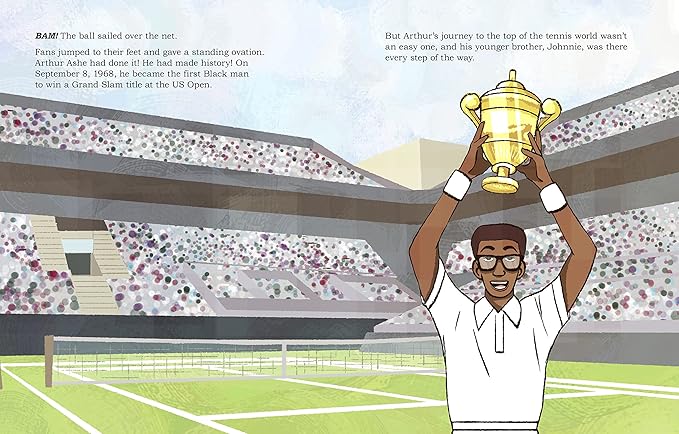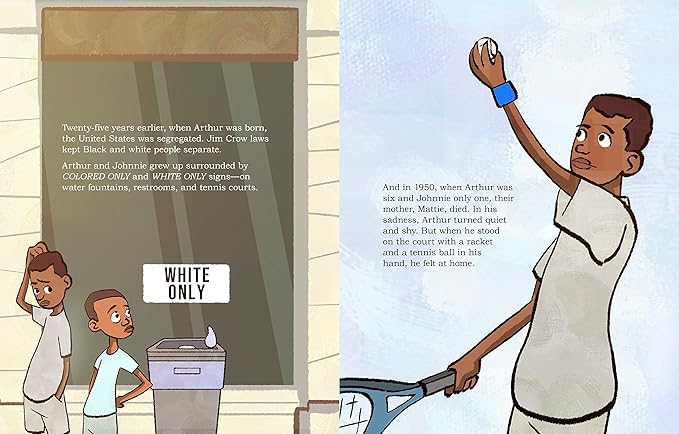The Ashe Brothers: A Captivating Story of Resilience and Sportsmanship
The Ashe Brothers: A Captivating Story of Resilience and Sportsmanship
Introduction to The Ashe Brothers
In the world of sports history, few names carry the weight and significance of the Ashe family. The Ashe brothers, Arthur and Johnnie Ashe, were not only significant figures in the realm of tennis but also icons of social change, embodying perseverance, courage, and an unrelenting dedication to breaking down barriers. While Arthur Ashe is widely celebrated as the first African American man to win a Grand Slam title, his brother Johnnie also played a crucial role, especially in his military career and the quiet sacrifices that paved the way for Arthur’s success. Their intertwined lives tell a powerful story of brotherhood, dedication, and overcoming adversity.

A Glimpse into the Ashe Brothers’ Early Life
Arthur and Johnnie Ashe grew up in a racially segregated Richmond, Virginia, during the 1940s and 1950s. The two brothers, though separated by five years, shared an incredibly close bond from an early age. Raised in a modest environment, the brothers experienced firsthand the effects of racism and segregation, yet they remained determined to achieve greatness in their respective fields.
Arthur Ashe’s Rise in Tennis
Arthur Ashe’s journey into tennis began at an early age when he was introduced to the sport by local mentors. His natural talent quickly became evident as he rose through the ranks, eventually earning a place at the prestigious UCLA tennis program. From there, Ashe made history by becoming the first African American male to win the U.S. Open (1968) and Wimbledon (1975), cementing his place as one of the sport’s all-time greats.
Arthur’s achievements on the court were only part of his legacy. He was a vocal advocate for social justice, using his platform to challenge the status quo on issues ranging from racial equality to apartheid in South Africa.
Johnnie Ashe’s Military Service and Sacrifice
While Arthur gained prominence in tennis, Johnnie Ashe took a different path, dedicating himself to the U.S. Marine Corps. Johnnie served two tours in Vietnam, but what is often overlooked is the remarkable sacrifice he made for his brother. In an extraordinary act of brotherly love, Johnnie volunteered for a second tour of duty in Vietnam to allow Arthur to continue his tennis career without the risk of being drafted.
This act was emblematic of the deep bond the brothers shared. Johnnie’s willingness to put his life on the line not only highlighted his bravery but also played a critical role in Arthur’s ability to focus on his groundbreaking career. Johnnie Ashe’s decision is a testament to the strong family values and unbreakable bond that existed between the two brothers.

The Ashe Brothers and Their Legacy of Social Justice
The Ashe brothers were more than just athletes and soldiers; they were trailblazers in the fight for social justice. Arthur Ashe used his celebrity status to advocate for causes that were close to his heart. From battling apartheid in South Africa to raising awareness about the HIV/AIDS crisis—especially after his own diagnosis in 1988—Arthur was deeply committed to creating a more equitable world.
Johnnie Ashe, though quieter in the public sphere, played an equally important role. His military service and his support of Arthur’s career were integral to their shared mission of breaking racial barriers. Together, the Ashe brothers helped redefine what it meant to be African American men in the mid-20th century, not just through their professional accomplishments but through their unwavering commitment to their principles.
The Ashe Brothers’ Impact on Modern Sports and Society
Today, the legacy of the Ashe brothers extends far beyond tennis courts and battlefields. Arthur Ashe’s work as a civil rights leader continues to inspire athletes to use their platforms for social change. His speeches, writings, and public appearances continue to resonate, encouraging the next generation of athletes to engage with social issues both on and off the court.
Johnnie Ashe’s story, while less publicized, underscores the importance of family, sacrifice, and support. His quiet heroism serves as a reminder that behind every great figure is often a network of individuals who contribute in essential, yet sometimes unheralded, ways.




One Comment